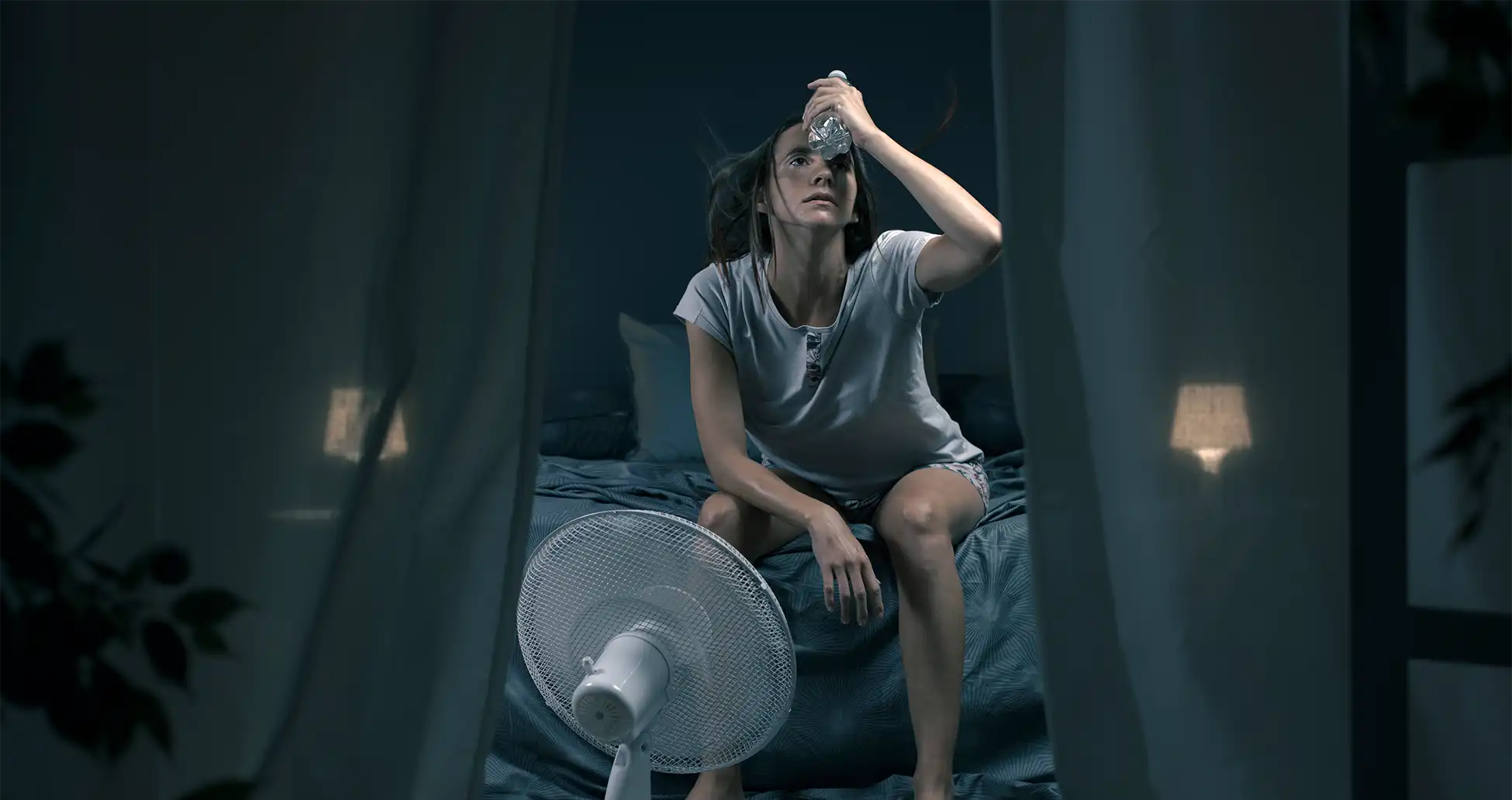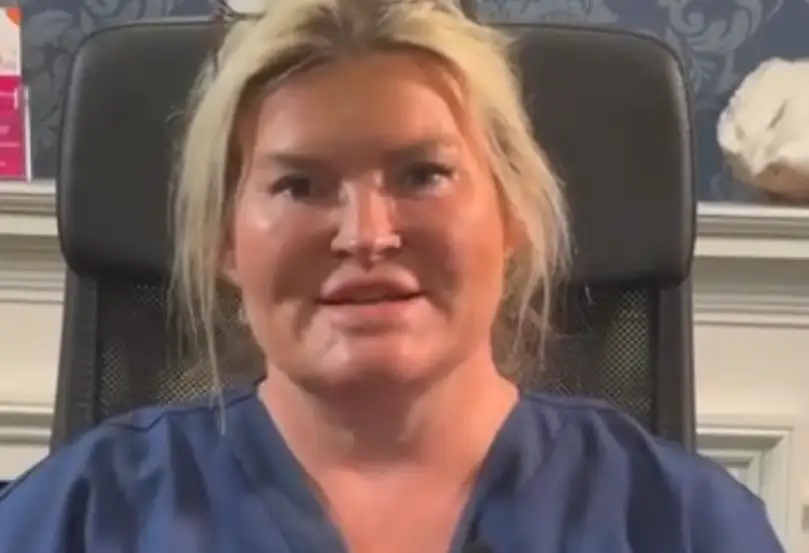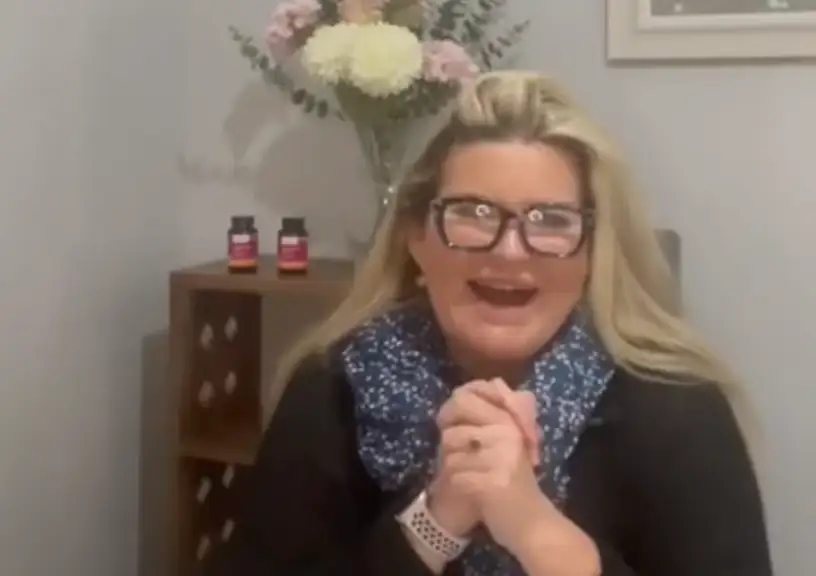Sleepless nights and menopause
As we move through life, our bodies go through many changes. And one of the least discussed yet most common changes is menopause. It’s a natural part of life, but it can still come with some unpleasant side effects. One of the most common is sleepless nights.
If you’re experiencing sleepless nights due to menopause, you’re not alone. Many women go through this, and it can be hard to cope with. But it’s important to remember that there are ways to manage the symptoms, and to get the restful sleep you need.
Causes of Sleeplessness During Menopause
Menopause can cause serious sleeplessness for women due to its many symptoms. Hot flashes, night sweats, and stress/anxiety are the most common causes. Hot flashes are very uncomfortable: they cause sudden and intense feelings of warmth, with an increased heart rate and sweating. Night sweats are a similar sensation that can happen at night, preventing a good night’s rest. Stress and anxiety are also common during menopause, and can make it difficult to drift off to sleep. If you’re having trouble sleeping due to menopause, try to focus on relaxation techniques such as yoga and deep breathing.
Hot Flashes
As the transition to menopause begins, many women may experience hot flashes, which can be disruptive to their sleep. Hot flashes can cause discomfort and restlessness, making it difficult to drift off and stay asleep. They can also cause night sweats, which can be even more disruptive, leading to a damp, uncomfortable sleep.
Most women will experience hot flashes to some degree during menopause, with some experiencing more intense hot flashes than others. If you’re feeling overwhelmed and anxious from the intensity of the hot flashes, you’re not alone. Every woman’s experience is different, and it’s important to seek out advice and support from your healthcare provider to manage the transition.
Night Sweats
After the physical exhaustion of hot flashes, night sweats come into the picture. As if hot flashes weren’t enough, night sweats cause a whole new kind of disruption for women going through menopause. These night sweats can leave you feeling utterly drained, forcing you to wake up drenched in sweat and completely exhausted. And it’s not just the physical toll – night sweats can take an emotional toll as well. Anxiety and stress can be triggered by the lack of sleep, leaving you feeling overwhelmed and disorientated.
It’s important to remember that night sweats during menopause are incredibly common, and you are not alone in feeling this way.
Night sweats during menopause can be incredibly uncomfortable and even embarrassing. It can also be a cause of sleeplessness. Many women experience night sweats during menopause, but luckily there are ways to help manage it.
One way to manage night sweats is to keep your bedroom cool. Make sure the room is well-ventilated and the temperature is comfortable for you. Also, if you can, try to avoid eating spicy or heavy foods late at night. Eating late at night can lead to night sweats and make it hard to fall asleep.
If you find that night sweats are really disrupting your sleep, it’s a good idea to talk to your doctor.

Strategies for a Good Night’s Rest
Getting enough restful sleep is essential for good health and well-being. I believe the key to a good night’s sleep is to have strategies in place for a good night’s rest. Exercise regularly, follow a relaxing bedtime routine, practice stress management, and get the right amount of light exposure are just a few of the strategies I recommend.
Exercise can help reduce stress and fatigue, and can also help you fall asleep faster. So, make sure to get in some physical activity during the day, such as walking, jogging or yoga.
Exercise Regularly
Now that we know the possible causes of sleeplessness during menopause, let’s take a look at strategies for getting a good night’s rest. One of the best ways to get quality sleep is to exercise regularly. Doing so helps to regulate your body’s circadian rhythm, which is responsible for your sleep-wake cycle. When you exercise, it helps to reduce stress and boosts your mood. It can also help to improve the quality of your sleep.
When you exercise, make sure to do it earlier in the day. This will give your body time to wind down and prepare for sleep later in the evening. Find an activity that you enjoy, whether it’s aerobics, yoga, or something else.
Follow a Relaxing Bedtime Routine
Now that we’ve gone over some of the causes of sleeplessness during menopause, let’s review some of the strategies that can help you get a good night’s rest. One of the most important strategies is to follow a relaxing bedtime routine. It can be helpful to create a routine that helps signal to your body that it’s time to slow down and rest.
Start by setting aside 30 minutes to an hour before bedtime to wind down and relax. This is your chance to unwind, disconnect from technology, and prepare for sleep. You could take a warm bath or shower, practice deep breathing or meditation, or read a book. Doing something calming can help you relax and get ready for bed.
Exercise
Now let’s shift our focus to a key strategy for a good night’s rest: exercise.
If you’re feeling overwhelmed, getting some physical activity can be a great way to reduce stress. Even just going for a quick walk around the block can make a difference. Exercising regularly can also help you feel more alert during the day, so you’re more likely to feel tired at night.
It’s important to remember to make fitness fun. Try different activities that you enjoy, like swimming, dancing, or going for bike rides with friends. Even if you’re not able to make it to the gym, you can still get some exercise at home with yoga or a simple online workout video.
Treating Menopause-Related Insomnia
Treating menopause-related insomnia can be a complex process. I’d like to discuss a few effective strategies for managing this condition, such as cognitive behavioral therapy (CBT), hormone replacement therapy (HRT), lifestyle changes, exercise, and relaxation techniques.
CBT helps to identify and address underlying mental health issues that may be contributing to insomnia. By addressing these issues, CBT can help to reduce the duration and severity of insomnia.
HRT can help balance hormone levels, which can help reduce symptoms of menopause, such as hot flashes and night sweats, which can help improve insomnia.
Cognitive Behavioral Therapy (CBT)
Moving on from discussing strategies to get a good night’s rest, let’s talk about treating menopause-related insomnia. Specifically, we’ll look at Cognitive Behavioral Therapy (CBT) to address the condition. CBT is a type of therapy that helps people recognize and change negative thought patterns and behaviors. It focuses on identifying and overcoming the underlying causes of insomnia, such as sleep-related anxiety and poor sleep hygiene. CBT techniques are tailored to each individual and can include techniques such as cognitive restructuring, relaxation training, sleep restriction therapy, and stimulus control.
Once the underlying causes of insomnia are identified, the therapist can work with the patient to develop a unique plan of action that may include lifestyle changes, changes to diet and exercise routines, and other coping strategies.
Hormone Replacement Therapy (HRT)
The previous section discussed strategies for a good night’s rest, but what if those strategies aren’t enough? If you’re dealing with menopause-related insomnia, hormone replacement therapy (HRT) may be an option worth considering.
HRT is a type of medical treatment that replaces the hormones your body isn’t producing due to menopause. It’s a common treatment for menopause-related insomnia, as it’s been shown to reduce symptoms like night sweats and hot flashes, which can disrupt sleep.
HRT is usually administered in the form of a pill or a patch. The type of hormone replacement therapy your doctor prescribes depends on your individual needs and health history.
Lifestyle Changes to Address Insomnia
Building upon the strategies for a good night’s rest, treating menopause-related insomnia also involves lifestyle changes to address insomnia. For instance, it’s important to establish a consistent sleep schedule, which means going to bed and waking up at the same time each day. Additionally, it’s important to create a sleep-conducive environment by controlling the temperature, sound, and light. It may also be helpful to limit caffeine, alcohol, and nicotine consumption, as these can all interfere with sleep. Lastly, it’s a good idea to avoid eating large meals before bed, as well as exercising too close to bedtime. All of these lifestyle changes can help to minimize the stress and anxiety that often accompany menopause-related insomnia.
Conclusion
Menopause-related sleeplessness can be quite distressing, but with the right strategies, it can be managed. It’s important to remember that you’re not alone and that help is available. It’s essential to talk to your doctor if your symptoms persist, as they can recommend treatments that can help you get the sleep you need.
If you have tried some of the above, and haven’t got the results you were hoping for, MenoBliss could help you. With 38 natural active ingredients to help improve hormonal balance, MenoBliss helps reduce aches and pains, hot flashes, mood swings, insomnia, brain fog, and lack of desire.
So take a deep breath and know that this too shall pass.



